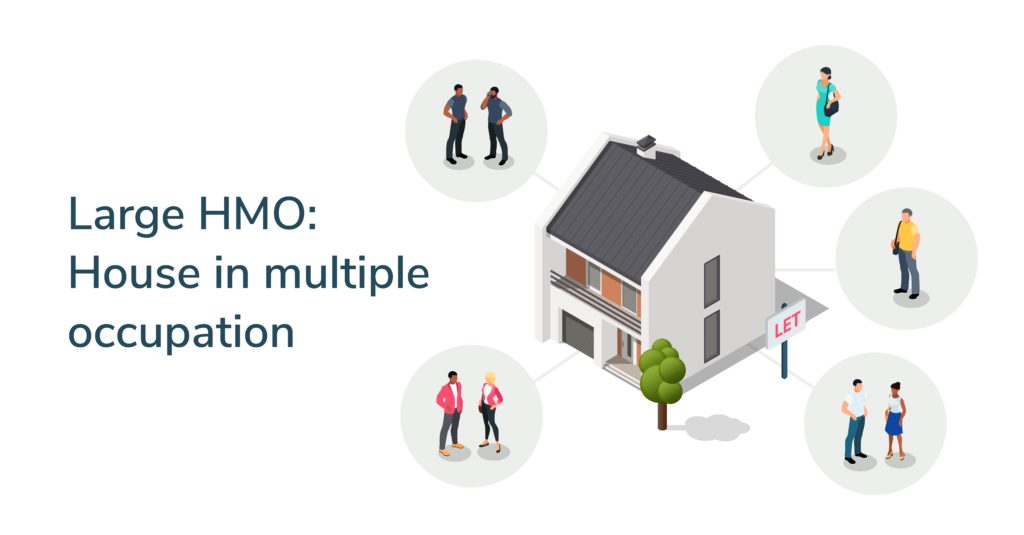- What we do What we do
- How we can help How we can help
- Insights Insights
- About About
- Support Support
- Book a Demo

A Guide to Mandatory HMO Licensing for Letting Agents
Left scratching your head over property licensing? You’re not alone. It is a notoriously complicated field that leaves many property managers looking for support. There are three types of licensing to become familiar with: mandatory, additional, and selective. The best way to make sense of the changing regulations and better understand licensing requirements is to start with the only licensing scheme applied nationwide, namely mandatory licensing. This article will outline everything a letting agent needs to know about mandatory licensing for a house in multiple occupation (HMO).
What will we cover?
- Which properties need a mandatory licence?
- How do you obtain a mandatory licence?
- Who should apply?
- How much does it cost?
- How long does it last?
- What happens if I do not have a mandatory licence?
- What about room size?
- Are there exemptions?
Which properties need a mandatory licence?
HMO licensing was first introduced as part of the 2004 Housing Act to improve the safety, management and quality of Private Rented Sector (PRS) properties. All letting agents and landlords across the UK operating a ‘large’ HMO will need to apply for a mandatory licence. Large HMOs have five or more tenants forming more than one household. The tenants of each household share facilities such as a toilet, bathroom or kitchen. At least one tenant or their employer pays rent.

How do you obtain a mandatory licence?
All HMO properties need to be licensed by the local authority (i.e., the council), which provides forms for an application. During the process, letting agents are best placed to help landlords sidestep many of the frustrations and friction points that they face during the application and follow-up. Kamma offers a service that streamlines the application service and saves time for letting agents. Get in touch to find out more.
Who should apply?
It is the responsibility of the landlord to apply for the licence and pay the associated fee, often assisted by the letting agency that manages the property. The letting agency is legally obligated to ensure that all properties in their portfolio are appropriately licensed. Check out our in-depth guide about the roles and responsibilities associated with property licensing.
How much does it cost?
The cost of a mandatory licence varies between local authorities, but it tends to range from £500 to £1,500.
How long does it last?
Mandatory licences last for up to 5 years. However, some licences last for less than the maximum period if, for example, the application was later found to be incomplete, or the management of the property is called into question. As the licence term ends, the landlord must submit a renewal application before the expiry date.
What happens if I do not have a mandatory licence?
Letting agents and landlords are normally allowed up to 28 days to secure an HMO licence. However, if non-compliance persists, the local authority will take legal action. The highest fee for a 5 person HMO in London are now at or above £2,500, with higher costs for higher occupancy. And the average fine for a letting agent for all offences is £5,545, whereas the largest fine levied against an agent is £167,000. As of August 2022, £8,010,344 in fines have been levied against rogue agents and landlords for unlicensed properties in London alone.
If a property is found to be unlicensed, the local authority and tenant can apply for a Rent Repayment Order (RRO) requiring the landlord to repay up to 12 months rent or risk a banning order that prevents the property from being let in the future. Serious and repeat offences may result in prosecution and a sentence of up to five years and an uncapped fine. The landlord may also be listed on the Rogue Landlord database.
An unlicensed property also means that the property manager cannot serve the occupier with a Section 21 (s21) notice, potentially preventing them from regaining possession of the property at the end of a tenancy agreement.
Each month, awareness is growing among tenants about the right to apply for RROs, and councils continue to upscale their enforcement efforts against rogue agents and landlords. See our latest Rogue Landlord Roundup to learn more about how Kamma is helping agents and landlords to stay on top of the latest property licensing schemes and avoid fines.
What about room size?
When it comes to licensing, room size matters. There are national standards set for the minimum room size requirements in an HMO property, but local authorities often stipulate additional measures. Read more about the key points regarding room size regulations.
Are there exemptions?
Some properties are exempt from mandatory licensing. A non-exhaustive list of the most common exemptions includes:
- The property is in a purpose-built block of flats that contains three or more dwellings
- The property is let by a local authority, registered charity, or a Registered Provider (also known as a not-for-profit Housing Association)
- The property is subject to a management order, empty dwelling management order, or temporary exemption notice
- The property is used as a night shelter, temporary accommodation, place of worship, holiday let, or student accommodation
- The property contains single-family dwellings where each dwelling is occupied by one household
Want to know more about licensing? See our Ultimate Guide for Letting Agents on Property and HMO Licensing. Kamma is determined to improve living standards in the PRS by demystifying property licensing with the most up-to-date information on recent regulatory changes. Subscribe to our monthly property licensing update to stay in the loop, and book a demo now to see our solutions for property managers.

How EPC data impacts property valuation for mortgage lenders
Reliable and up-to-date energy efficiency data is a must to ensure an accurate property valuation for UK mortgage lenders – here’s why.
Read more
New insights: how does EPC data impact affordability assessments?
Accurate energy performance data is a must to ensure mortgage lenders can accurately assess affordability and reduce risk – here’s why.
Read more
Kamma’s Response to CVE-2024-0394 (XZ Utils Backdoor)
Last week security researchers publicised a malicious back door in the XZ Utils library, a widely used suite of software that gives developers lossless compression and is commonly used for compressing software releases and Linux kernel images. The backdoor could, under certain circumstances be used to run unauthorised code via the encrypted SSH connection protocol. […]
Read more
Subscribe to the Kamma Newsletters
Regular news, information and insights from Kamma. No spam. Unsubscribe at any time.
Subscribing ...
Sorry, we really want to but we couldn't subscribe you due to missing or incorrect information; please update the information that's highlighted in red and try again.
Well this is awkward. Something went wrong on the internet between your browser and our newletter subscription service. Please let us know and we'll do our best to fix it for you.
Thanks for subscribing! Check your Inbox in a short while for a confirmation email to check it was really you that just subscribed. If you've already subscribed, we'll keep your subscription but you won't receive a confirmation email this time.
